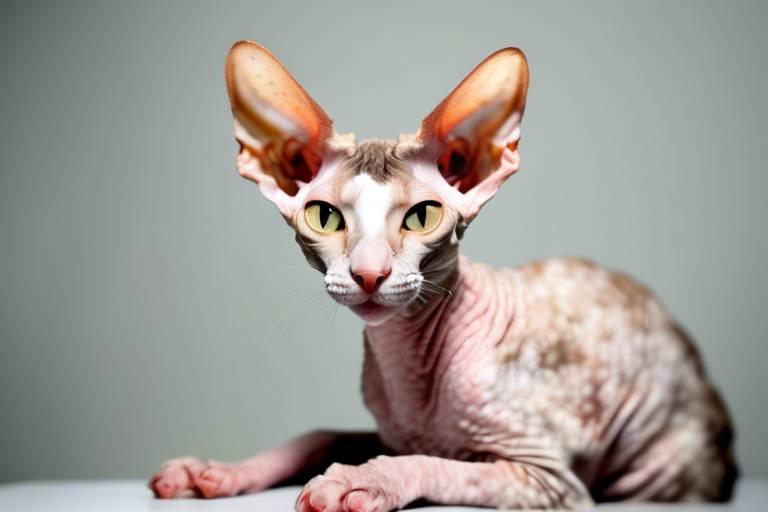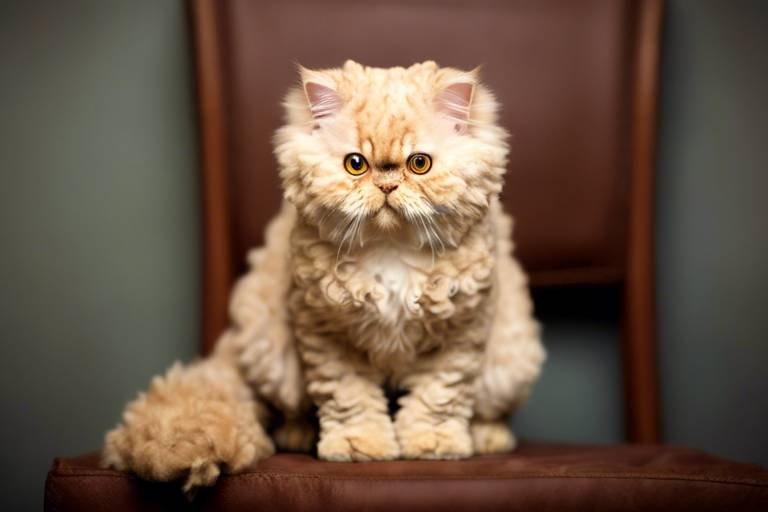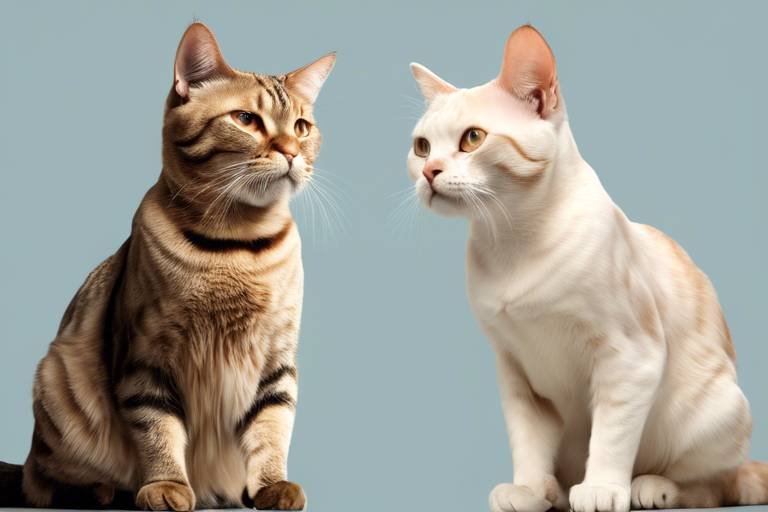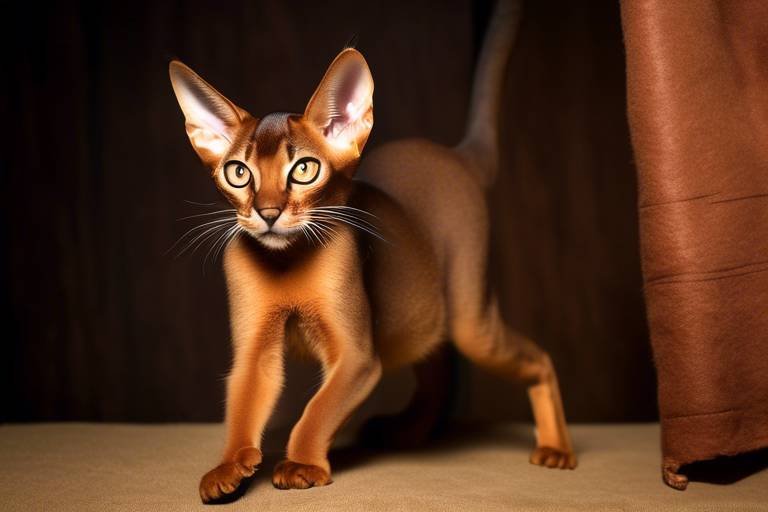The Unique Traits of the Cornish Rex
The Cornish Rex is a breed that stands out in the feline world, not just for its looks but also for its remarkable personality. Imagine a cat that combines the elegance of a ballerina with the playful spirit of a puppy; that's the Cornish Rex for you! This breed, with its unique physical characteristics and engaging demeanor, has captured the hearts of many cat lovers around the globe. In this article, we will delve into the distinctive traits of the Cornish Rex, exploring everything from its striking appearance to its affectionate nature and specific grooming needs. Whether you're considering adding a Cornish Rex to your family or simply curious about this charming breed, you're in for a treat!
The Cornish Rex is renowned for its unique physical traits, which set it apart from other cat breeds. One of the most striking features is its short, curly coat, which feels velvety to the touch. This unusual fur not only gives the Cornish Rex its signature look but also reduces the amount of shedding, making it a great option for allergy sufferers. Furthermore, the breed boasts a slender body that exudes grace and agility, paired with large ears that are almost bat-like in appearance. These ears are not just for show; they enhance the cat's hearing and contribute to its playful demeanor, allowing it to detect even the faintest sounds in its environment.
When it comes to personality, the Cornish Rex is a true delight. Known for their affectionate and playful nature, these cats thrive on interaction and companionship. They are social animals that love being around people and other pets, making them perfect for families. Their energetic personality can turn any mundane day into an adventure, as they are always eager to engage in games and activities. If you’re looking for a cat that will keep you entertained and shower you with love, the Cornish Rex fits the bill!
One of the most endearing qualities of the Cornish Rex is its playfulness. These cats are like little comedians, always ready to entertain with their antics. They enjoy interactive games, such as chasing feather toys or playing hide and seek. Their high energy levels necessitate regular playtime; otherwise, they might find their own ways to amuse themselves, which could lead to some unexpected surprises around the house!
These cats are not just playful; they are also incredibly social. Cornish Rex cats thrive in multi-pet households and enjoy forming strong bonds with their human companions. They are known to follow their owners around the house, seeking attention and affection. This friendly nature makes them ideal for families with children or other pets, as they adapt well to various social settings.
Curiosity is another defining trait of the Cornish Rex. These cats are naturally inquisitive and love to explore their surroundings. You might find them investigating every nook and cranny of your home or climbing to new heights just to satisfy their curiosity. This behavior can lead to amusing antics, keeping the atmosphere lively and entertaining.
Lastly, Cornish Rex cats are known for their affectionate behavior. They have a knack for seeking out human companionship and often enjoy cuddling with their owners. Their loving demeanor makes them cherished family pets, as they provide comfort and companionship to those around them. If you’re looking for a cat that will curl up on your lap while you watch TV or read a book, the Cornish Rex is the perfect choice!
Despite their unique coat, the Cornish Rex has relatively minimal grooming needs compared to other breeds. Their short hair means less maintenance, but regular brushing is still essential to keep their coat healthy and to reduce shedding. This not only ensures a clean living environment but also helps strengthen the bond between you and your feline friend as you spend time together during grooming sessions.
Interestingly, due to the unique texture of their coat, Cornish Rex cats may require occasional baths. This helps remove excess oils and dirt that can accumulate on their skin. While bathing a cat may sound daunting, with proper techniques and a gentle approach, it can be a pleasant experience for both you and your cat.
The Cornish Rex's large ears are not just adorable; they also require regular care to prevent wax buildup. Establishing a routine for ear cleaning is essential for their overall health and comfort. A simple weekly check can go a long way in ensuring your cat stays happy and healthy.
Like all breeds, the Cornish Rex is prone to certain health issues. Understanding these potential concerns can help owners provide the best care for their feline friends. Regular veterinary check-ups and screenings are vital to identify and manage any health risks early on.
Cornish Rex cats may be susceptible to specific genetic conditions, which is why it’s crucial to stay informed about their health. Regular veterinary visits can help in early detection and management of these issues, ensuring that your furry friend lives a long and healthy life.
A balanced diet is crucial for maintaining the health of a Cornish Rex. Owners should be aware of their nutritional requirements to promote a healthy weight and overall well-being. Consulting with a veterinarian for tailored dietary advice can make a significant difference in your cat's health.
Q: Do Cornish Rex cats shed a lot?
A: No, their unique short coat reduces shedding significantly, making them a good choice for allergy sufferers.
Q: Are Cornish Rex cats good with children?
A: Absolutely! They are friendly and social, making them great companions for families with children.
Q: How often should I groom my Cornish Rex?
A: Regular brushing once a week is usually sufficient to keep their coat healthy.
Q: Do they require special diets?
A: While they don’t require a special diet, a balanced and nutritious diet is essential for their overall health.

Physical Characteristics
This article explores the distinctive characteristics of the Cornish Rex breed, including its physical features, personality traits, grooming needs, and health considerations, providing a comprehensive understanding of this charming feline companion.
The Cornish Rex is a breed that stands out in the feline world, thanks to its unique physical traits. One of the first things you’ll notice is its short, curly coat. This coat isn’t just for show; it’s a product of a natural mutation that gives the Rex its signature look. The texture is soft and velvety, making it a delight to pet. Unlike many other breeds that require extensive grooming, the Cornish Rex’s coat is relatively low-maintenance, which is a plus for busy cat owners.
Another striking feature of the Cornish Rex is its slender, athletic body. These cats are built for agility, with long legs and a narrow waist that give them an elegant appearance. Their body structure allows them to jump and play with remarkable ease, making them quite the acrobats in your living room! You might find them leaping onto high surfaces or engaging in playful chases, showcasing their energetic nature.
Let’s not forget their large ears, which add to their distinctive look. These ears are not just for decoration; they play a crucial role in their hearing capabilities. The Cornish Rex has excellent hearing, allowing them to detect sounds that many other cats might miss. This keen sense of hearing, combined with their curious nature, makes them fantastic explorers in any environment.
To summarize, here are the key physical traits of the Cornish Rex:
- Curly Coat: Soft and low-maintenance.
- Slender Body: Agile and athletic, perfect for play.
- Large Ears: Excellent hearing and a unique appearance.
These characteristics not only make the Cornish Rex a visually appealing breed but also contribute to its playful and lively personality. If you’re looking for a cat that’s as fun to watch as it is to cuddle, the Cornish Rex might just be the perfect fit for you!
Known for their affectionate and playful nature, Cornish Rex cats are social animals that thrive on interaction. Their energetic personality makes them delightful companions for families and individuals alike.
Cornish Rex cats are particularly playful, often engaging in interactive games and activities. Their high energy levels require regular playtime to keep them stimulated and happy.
These cats enjoy socializing with both humans and other pets, making them ideal for multi-pet households. Their friendly nature fosters strong bonds with family members.
Cornish Rex cats are naturally curious, exploring their surroundings with enthusiasm. This inquisitive behavior can lead to amusing antics and a lively home environment.
Cornish Rex cats are known for their affectionate nature, often seeking out human companionship and cuddling. Their loving demeanor makes them cherished family pets.
With their short coat, the Cornish Rex requires minimal grooming compared to other breeds. Regular brushing helps maintain coat health and reduces shedding, ensuring a clean living environment.
Due to their unique coat texture, Cornish Rex cats may require occasional baths to remove excess oils and dirt. Proper bathing techniques can help keep their skin healthy.
The Cornish Rex's large ears need regular cleaning to prevent wax buildup. Establishing a routine for ear care is essential for their overall health and comfort.
Like all breeds, the Cornish Rex is prone to certain health issues. Understanding these potential concerns can help owners provide the best care for their feline friends.
Cornish Rex cats may be susceptible to specific genetic conditions. Regular veterinary check-ups and screenings can help identify and manage these health risks effectively.
A balanced diet is crucial for maintaining the health of a Cornish Rex. Owners should be aware of their nutritional requirements to promote a healthy weight and overall well-being.
Q: Do Cornish Rex cats shed a lot?
A: No, they have a short, curly coat that sheds less than many other breeds.
Q: Are Cornish Rex cats good with children?
A: Yes, their playful and affectionate nature makes them great companions for kids.
Q: How often should I groom my Cornish Rex?
A: Minimal grooming is needed, but regular brushing will help keep their coat healthy.
Q: Do they require special diets?
A: Like any cat, they benefit from a balanced diet tailored to their age and activity level.
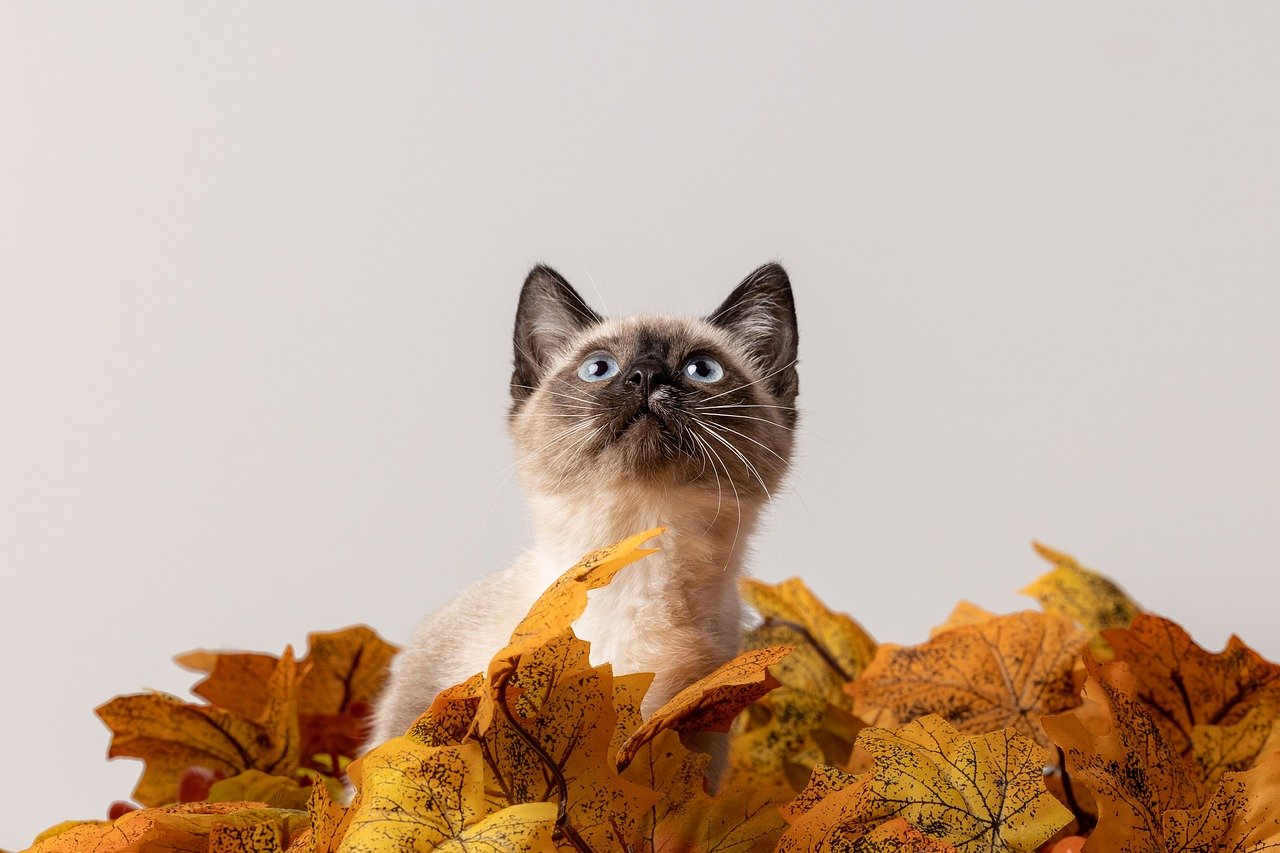
Personality Traits
The Cornish Rex is not just a pretty face; it boasts a personality that is as captivating as its unique appearance. These cats are renowned for their affectionate and playful nature, making them delightful companions for anyone lucky enough to share their home. If you’re looking for a feline friend that thrives on interaction and charm, the Cornish Rex might just be your perfect match!
One of the standout traits of the Cornish Rex is its high energy level. These cats are like little bundles of joy, constantly on the move and ready to engage in all sorts of fun. They absolutely love interactive games, whether it's chasing a feather toy or playing hide and seek. You might find yourself laughing as they leap and bound around the room, showcasing their athleticism. It’s essential to provide them with regular playtime to keep their spirits high and their minds sharp. After all, a tired Cornish Rex is a happy Cornish Rex!
When it comes to playfulness, the Cornish Rex takes the cake. Their playful antics can turn any dull day into a lively adventure. You might catch them pouncing on imaginary prey or engaging in a spirited game of tag with their human companions. Their innate curiosity drives them to explore every nook and cranny of their environment, leading to amusing discoveries. Just imagine watching your Cornish Rex find a new hiding spot or trying to fit into a box that’s way too small for them—it's pure entertainment!
What truly sets the Cornish Rex apart is its social nature. These cats are not content to lounge around in solitude; they thrive on companionship, whether it’s with humans or other pets. If you have a multi-pet household, you’ll find that a Cornish Rex can become the life of the party, forging strong bonds with everyone in the family. They have a knack for making friends, and their friendly demeanor ensures that no one feels left out. Just picture a Cornish Rex curling up next to you on the couch, purring contentedly as you watch your favorite show together—talk about the perfect cuddle buddy!
Curiosity is another defining trait of the Cornish Rex. These cats are natural explorers, always eager to investigate their surroundings. You might find them perched on a windowsill, watching the world go by, or poking their noses into bags and boxes. This inquisitive behavior can lead to some hilarious situations, as they often get themselves into mischief while exploring. Their curiosity not only keeps them entertained but also provides endless amusement for their human companions.
Lastly, let’s talk about their affectionate side. Cornish Rex cats are known for their love of human companionship. They often seek out cuddles and will happily curl up in your lap or snuggle beside you in bed. Their warm and loving demeanor makes them cherished family pets. It’s not uncommon for a Cornish Rex to follow you around the house, wanting to be involved in whatever you’re doing. This bond creates a deep connection that makes every day feel special.
In conclusion, the Cornish Rex is a breed that brings joy and laughter into any household. With their playful spirit, social nature, and affectionate behavior, these cats make for wonderful companions. If you’re considering adding a Cornish Rex to your family, be prepared for a lively, loving, and endlessly entertaining experience!
- What is the average lifespan of a Cornish Rex? The average lifespan of a Cornish Rex is typically around 12 to 15 years.
- Are Cornish Rex cats hypoallergenic? While no cat is completely hypoallergenic, many people with allergies find that they react less to Cornish Rex cats due to their unique coat.
- How much exercise does a Cornish Rex need? Cornish Rex cats are very active and require daily playtime to keep them healthy and happy.
- Do Cornish Rex cats get along with other pets? Yes! They are known for their friendly nature and typically get along well with other pets.
Playfulness
The Cornish Rex is a breed that epitomizes the essence of playfulness. Imagine a little whirlwind of energy darting around your living room, chasing after a feather toy or pouncing on a crumpled piece of paper. This breed isn't just a cat; it's a bundle of joy wrapped in fur! Their playful nature is not just a phase; it's a lifelong trait that brings a sense of liveliness to any home.
One of the most delightful aspects of the Cornish Rex's playfulness is their love for interactive games. They thrive on activities that engage both their minds and bodies. Whether it's a game of fetch with a small ball or a laser pointer chase, these cats are always up for a challenge. Their high energy levels mean that they require regular playtime to stay happy and healthy. In fact, if you don't provide them with enough stimulation, you might find them inventing their own games, which can lead to some amusing and sometimes mischievous antics!
It's essential to keep their play sessions varied and exciting. Here are a few fun ideas that can keep your Cornish Rex entertained:
- Interactive Toys: Toys that make noise or move can keep them engaged for hours.
- Obstacle Courses: Set up small obstacles for them to navigate; it's a great way to exercise and stimulate their minds.
- Hide and Seek: Hide treats around the house and let them use their keen sense of smell to find them.
Moreover, the playful spirit of the Cornish Rex makes them excellent companions for children. They are often patient and gentle, fostering a bond that can lead to a lifetime of cherished memories. Just imagine your kids laughing and playing with a Cornish Rex, creating a joyful atmosphere filled with love and laughter. It's a match made in heaven!
In summary, the playfulness of the Cornish Rex is not just a characteristic; it's a way of life. Their energetic antics and love for interactive play can brighten any household. So, if you're considering adding a Cornish Rex to your family, be prepared for a delightful adventure filled with laughter, joy, and plenty of playful moments!
1. How much playtime does a Cornish Rex need?
Most Cornish Rex cats thrive on at least 30 minutes of active playtime each day. Engaging them in various activities will help keep their energy levels in check and promote good health.
2. Can Cornish Rex cats play alone?
While they can entertain themselves, Cornish Rex cats are very social and prefer interactive play with their human companions. It's best to spend time playing with them to keep them happy.
3. What are some safe toys for Cornish Rex cats?
Safe toys include feather wands, balls, and interactive puzzle toys. Always ensure that toys are free from small parts that could be swallowed.
4. Is it necessary to rotate their toys?
Yes! Rotating their toys can keep their interest piqued and makes playtime more exciting. It’s like giving them new toys without spending a dime!
Social Interactions
The Cornish Rex is not just a cat; it's a furry bundle of joy that thrives on social interactions. These playful felines are known for their engaging personalities, making them the life of the party in any household. Imagine a cat that doesn't just lounge around but actively seeks your attention, follows you from room to room, and even engages in conversations with their delightful meows. That’s the Cornish Rex for you!
These cats are incredibly sociable and enjoy the company of both humans and other pets. If you have a family or multiple pets, a Cornish Rex will fit right in. They have an innate ability to forge strong bonds with their human companions, often curling up on laps or snuggling next to you on the couch. They crave interaction and will often initiate playtime, bringing endless entertainment to your home.
One of the most charming aspects of the Cornish Rex is their curiosity. They are like little explorers, always on the lookout for new adventures. Whether it’s investigating a new box or chasing after a feather toy, their playful antics can provide hours of amusement. This curiosity not only keeps them active but also enhances their interactions with family members. You may find them engaging in a game of hide-and-seek, darting around the house, or even attempting to 'help' you with household chores, much to your amusement!
To ensure a happy and well-adjusted Cornish Rex, it’s essential to provide them with plenty of opportunities for socialization. Regular playdates with other pets, interactive toys, and even scheduled cuddle time can help satisfy their social needs. They thrive in environments where they can interact, explore, and express their playful nature. So, if you’re considering adding a Cornish Rex to your family, be prepared for a lively companion who will keep you entertained and loved!
In summary, the Cornish Rex is a breed that truly embodies the spirit of companionship. Their affectionate behavior, coupled with their playful and curious nature, makes them a delightful addition to any home. Just remember, a happy Cornish Rex is one that feels loved and engaged in their social environment!
Curiosity
The Cornish Rex is a breed that embodies the spirit of curiosity in every fiber of its being. Imagine a small, agile creature with a penchant for exploration, much like a child discovering the world for the first time. These cats have an insatiable desire to investigate their surroundings, often leading them into the most unexpected places. Whether it's a crinkly bag left on the floor or a high shelf that seems just out of reach, the Cornish Rex will find a way to satisfy its inquisitive nature.
One of the most delightful aspects of their curiosity is how it manifests in their daily activities. You might find your Cornish Rex perched on a windowsill, intently watching the world outside, or poking its nose into every nook and cranny of your home. This behavior not only keeps them entertained but also provides endless amusement for their human companions. It's as if they are little detectives, always on the lookout for something new and exciting.
Curiosity in Cornish Rex cats can lead to some hilarious antics. For instance, they might find themselves in a cardboard box, completely oblivious to how they got there, or they could be seen chasing after a laser pointer with the determination of a seasoned hunter. This playful exploration is crucial for their mental stimulation and overall happiness. It's important for owners to engage with their curious nature by providing a variety of toys and activities that encourage exploration and play.
To foster a healthy environment for their curiosity, consider the following tips:
- Interactive Toys: Invest in toys that require problem-solving skills. Puzzle feeders or treat-dispensing toys can keep their minds sharp.
- Safe Exploration: Allow them to explore different areas of your home safely. Ensure that any potential hazards, such as small objects or toxic plants, are out of reach.
- Enrichment Activities: Set up climbing trees or shelves that encourage vertical exploration, allowing them to satisfy their natural instincts.
In conclusion, the curious nature of the Cornish Rex not only makes them captivating companions but also highlights the importance of providing an enriching environment. Their zest for life and exploration can turn an ordinary day into an adventure, making them a truly unique addition to any household.
Q1: Are Cornish Rex cats good with children?
A1: Yes, Cornish Rex cats are known for their playful and affectionate nature, making them great companions for children. They thrive on interaction and enjoy being part of the family activities.
Q2: How much exercise do Cornish Rex cats need?
A2: Cornish Rex cats are energetic and require regular playtime to keep them stimulated. Engaging them in interactive games for at least 15-30 minutes daily is beneficial.
Q3: Do Cornish Rex cats shed a lot?
A3: Cornish Rex cats have a unique short coat that sheds less than many other breeds. Regular brushing can help minimize shedding and keep their coat healthy.
Q4: What are common health issues in Cornish Rex cats?
A4: Like all breeds, Cornish Rex cats can be prone to certain genetic conditions. Regular veterinary check-ups are essential to monitor their health and catch any potential issues early.
Affectionate Behavior
The Cornish Rex is not just a pretty face; this breed is renowned for its , which makes it a beloved addition to many households. Imagine coming home after a long day, and your furry friend is there, waiting at the door with a joyful bounce and a purr that could melt even the coldest of hearts. That's the magic of a Cornish Rex! They thrive on human companionship and are often seen following their owners from room to room, eager to be part of every moment.
These cats have a unique way of expressing their love. They often seek out cuddles and lap time, curling up next to you or even on your lap, basking in the warmth of your affection. Their playful antics, such as chasing after toys or engaging in a game of hide-and-seek, are not just for entertainment; they're also a way for them to bond with their human companions. The joy they bring into the home is palpable, as their lively spirit and affectionate nature create an atmosphere of happiness and warmth.
In addition to their playful demeanor, Cornish Rex cats are known to be quite vocal. They communicate with a variety of sounds, from soft chirps to more pronounced meows, often using their voices to express their needs or desires. This vocalization is another layer of their affectionate personality, as they engage with their owners, seeking attention or simply wanting to share their day with you. It's like having a little companion who not only loves to play but also loves to chat!
Moreover, the affectionate behavior of a Cornish Rex isn't limited to just their human family members. They are often very social with other pets as well. If you have a dog or another cat, the Cornish Rex is likely to form a bond with them, often engaging in playful wrestling matches or snuggling up together. This social nature makes them an excellent choice for families with multiple pets, as they can seamlessly integrate into the family dynamic.
To sum it up, the affectionate behavior of the Cornish Rex is a blend of playfulness, vocal communication, and social interaction. They are not just pets; they are companions who thrive on love and attention. If you're looking for a cat that will fill your home with joy and warmth, the Cornish Rex might just be the perfect fit for you!
- Are Cornish Rex cats good with children? Yes, their playful and affectionate nature makes them great companions for children.
- Do Cornish Rex cats require a lot of grooming? No, they have a short coat that requires minimal grooming.
- How can I keep my Cornish Rex entertained? Engage them with interactive toys and regular playtime to satisfy their high energy levels.
- What is the lifespan of a Cornish Rex? On average, they live between 12 to 15 years, with proper care.

Grooming Needs
The grooming needs of the Cornish Rex are relatively simple compared to many other cat breeds, thanks to their short and curly coat. This unique fur not only contributes to their eye-catching appearance but also makes their grooming routine quite manageable. Regular brushing is recommended, ideally once a week, to keep their coat healthy and to minimize shedding. This is particularly important because, despite their short fur, Cornish Rex cats can still shed, and a little maintenance goes a long way in keeping your home clean.
One of the fascinating aspects of the Cornish Rex's coat is its texture. The curls and waves are a result of a genetic mutation, and while this gives them a distinct look, it also means that their skin can be more exposed than that of cats with longer fur. Therefore, keeping their skin healthy is essential. It’s wise to use a soft brush, as this will not only help remove loose hairs but also stimulate the skin and distribute natural oils, promoting a shiny coat.
Bathing is another grooming consideration for the Cornish Rex. While they don’t require frequent baths, they may need one every few months or when they get particularly dirty. Their skin can accumulate oils, which can lead to a less-than-pleasant odor if left unchecked. When bathing your Cornish Rex, use a mild cat shampoo and ensure you rinse thoroughly to avoid any residue that could irritate their skin. It's crucial to establish a calm environment during bath time, as many cats can find the experience stressful.
Additionally, the Cornish Rex has large ears that are prone to wax buildup. Regular ear cleaning is essential to prevent infections. You can use a veterinarian-recommended ear cleaner and a cotton ball to gently wipe the inside of their ears. Make this a part of your grooming routine, and your feline friend will thank you for it!
In summary, the grooming needs of a Cornish Rex are straightforward but important. By maintaining a regular grooming schedule that includes brushing, occasional baths, and ear care, you can ensure that your Cornish Rex remains not only looking fabulous but also feeling great. Remember, grooming is not just about aesthetics; it’s an opportunity to bond with your pet and keep them healthy.
- How often should I groom my Cornish Rex? Regular brushing once a week is sufficient, along with occasional baths as needed.
- Do Cornish Rex cats need special shampoos? Yes, use a mild cat shampoo that is specifically formulated for their sensitive skin.
- How can I tell if my Cornish Rex's ears need cleaning? If you notice a buildup of wax or a strong odor, it’s time for a cleaning.
- Is grooming a Cornish Rex difficult? Not at all! Their grooming needs are quite manageable and can be a fun bonding experience.
Bathing
This article explores the distinctive characteristics of the Cornish Rex breed, including its physical features, personality traits, grooming needs, and health considerations, providing a comprehensive understanding of this charming feline companion.
The Cornish Rex is renowned for its unique physical traits, including its short, curly coat, slender body, and large ears. These features contribute to its distinctive appearance and playful demeanor.
Known for their affectionate and playful nature, Cornish Rex cats are social animals that thrive on interaction. Their energetic personality makes them delightful companions for families and individuals alike.
Cornish Rex cats are particularly playful, often engaging in interactive games and activities. Their high energy levels require regular playtime to keep them stimulated and happy.
These cats enjoy socializing with both humans and other pets, making them ideal for multi-pet households. Their friendly nature fosters strong bonds with family members.
Cornish Rex cats are naturally curious, exploring their surroundings with enthusiasm. This inquisitive behavior can lead to amusing antics and a lively home environment.
Cornish Rex cats are known for their affectionate nature, often seeking out human companionship and cuddling. Their loving demeanor makes them cherished family pets.
With their short coat, the Cornish Rex requires minimal grooming compared to other breeds. Regular brushing helps maintain coat health and reduces shedding, ensuring a clean living environment.
Bathing a Cornish Rex cat is not a frequent necessity, but it can be beneficial for their unique coat and skin health. Unlike many other breeds, the Cornish Rex has a short, curly coat that doesn't trap dirt and debris as much, yet it can still accumulate oils over time. A gentle bath every few months can help remove excess oils and keep their skin in optimal condition. Here are some important tips to keep in mind when bathing your Cornish Rex:
- Use Mild Shampoo: Opt for a cat-specific shampoo that is free from harsh chemicals. This will help maintain the natural oils in their skin.
- Warm Water: Always use warm water, as cold water can be uncomfortable for your cat. Ensure the bathing area is warm to prevent your pet from getting chilled.
- Gentle Rinse: Rinse thoroughly to ensure no shampoo residue remains, as this can irritate their skin.
- Drying: After the bath, gently towel dry your cat. If they tolerate it, you can use a low setting on a hairdryer, but always keep it at a safe distance to avoid burns.
Establishing a bathing routine can be a bonding experience between you and your Cornish Rex. While they may not love the water, with patience and positive reinforcement, you can make bath time a less stressful event for both of you.
The Cornish Rex's large ears need regular cleaning to prevent wax buildup. Establishing a routine for ear care is essential for their overall health and comfort.
Like all breeds, the Cornish Rex is prone to certain health issues. Understanding these potential concerns can help owners provide the best care for their feline friends.
Cornish Rex cats may be susceptible to specific genetic conditions. Regular veterinary check-ups and screenings can help identify and manage these health risks effectively.
A balanced diet is crucial for maintaining the health of a Cornish Rex. Owners should be aware of their nutritional requirements to promote a healthy weight and overall well-being.
Q: How often should I bathe my Cornish Rex?
A: Generally, a bath every few months is sufficient, but it can vary depending on your cat's lifestyle and coat condition.
Q: Do Cornish Rex cats shed a lot?
A: They shed less than many other breeds due to their short coat, but regular grooming can help minimize any loose fur.
Q: Are Cornish Rex cats good with children?
A: Yes! Their playful and affectionate nature makes them excellent companions for children, provided they are socialized properly.
Ear Care
The Cornish Rex is known for its strikingly large ears, which not only contribute to its unique appearance but also play a crucial role in its overall health. Regular ear care is essential to prevent any potential issues that could arise from neglecting this important aspect of grooming. Just like we wouldn't ignore our own ear hygiene, your feline friend deserves the same attention!
To maintain healthy ears, it's important to establish a routine for cleaning. This can be as simple as checking their ears weekly for any signs of dirt, wax buildup, or irritation. If you notice any dark debris or a foul odor, it might be time for a thorough cleaning. You can use a soft, damp cloth or a cotton ball with a vet-recommended ear cleaner to gently wipe the outer ear. Remember, never insert anything deep into the ear canal, as this can cause injury!
Here’s a quick checklist to help you maintain your Cornish Rex's ear health:
- Check ears weekly for dirt and wax buildup.
- Use a vet-approved ear cleaner for gentle cleaning.
- Avoid inserting objects deep into the ear canal.
- Monitor for signs of irritation or infection, such as redness or excessive scratching.
By following these simple steps, you can help ensure that your Cornish Rex enjoys healthy ears and a happier life. Remember, a little attention can go a long way in preventing bigger health issues down the line!
Here are some common questions about Cornish Rex ear care:
- How often should I clean my Cornish Rex's ears? It's best to check them weekly and clean as needed.
- What should I use to clean their ears? A vet-recommended ear cleaner and a soft cloth or cotton ball work well.
- What are the signs of ear problems? Look for redness, excessive wax, foul odor, or your cat scratching its ears more than usual.
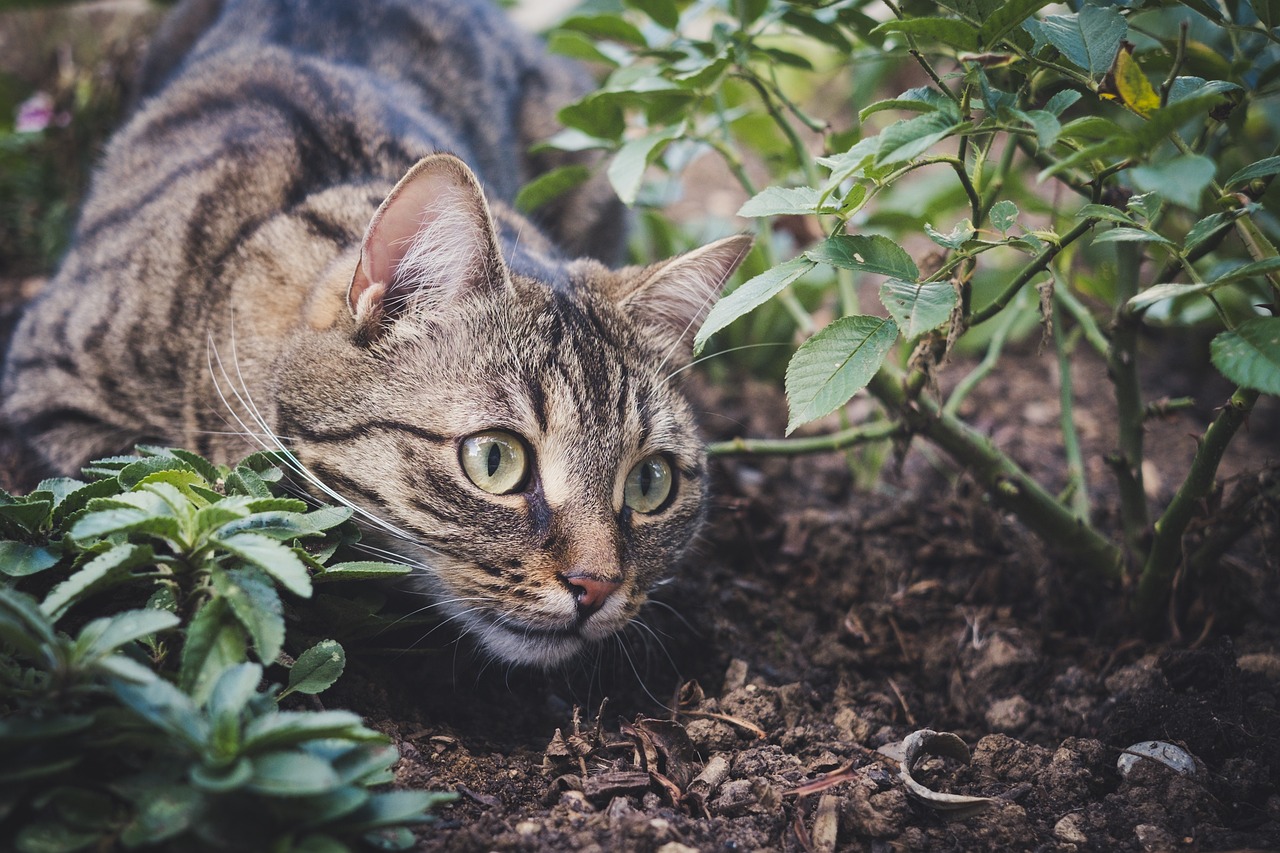
Health Considerations
When it comes to the health of your Cornish Rex, being proactive is key. Like any breed, these charming felines have specific health considerations that potential owners should be aware of. Understanding these factors can help you provide the best care for your furry friend and ensure they live a long, happy life.
One of the primary concerns for Cornish Rex cats is their susceptibility to certain genetic conditions. These can include issues such as hypertrophic cardiomyopathy (a heart condition) and hip dysplasia. Regular veterinary check-ups are essential, as early detection can significantly improve the management of these conditions. Make it a habit to schedule annual vet visits, where your veterinarian can perform necessary screenings and monitor your cat's health.
In addition to genetic conditions, it's crucial to pay attention to their dietary needs. Cornish Rex cats are known for their playful and energetic nature, which means they require a balanced diet to support their high energy levels. A diet rich in protein is ideal, as it helps maintain their lean muscle mass. Be cautious about overfeeding, as maintaining a healthy weight is vital for preventing obesity-related health issues. Consult your veterinarian for recommendations on the best food options tailored to your cat's age, weight, and activity level.
Another important aspect of their health is hydration. Ensure that your Cornish Rex has access to fresh water at all times, as proper hydration is essential for their overall well-being. Dehydration can lead to serious health problems, including urinary tract issues, which are not uncommon in cats.
To summarize, here are some key health considerations for your Cornish Rex:
- Regular Veterinary Check-ups: Essential for early detection of genetic conditions.
- Balanced Diet: Focus on high-protein foods to support their energy needs.
- Hydration: Ensure constant access to fresh water to prevent dehydration.
By being aware of these health considerations, you can take proactive steps to ensure your Cornish Rex remains healthy and happy. Remember, a little attention can go a long way in keeping your feline companion in tip-top shape!
Here are some common questions that potential owners of Cornish Rex cats often have:
- What is the average lifespan of a Cornish Rex? The average lifespan is typically between 12 to 15 years, but with proper care, they can live even longer.
- Do Cornish Rex cats have any special grooming needs? Their short coat requires minimal grooming, but regular brushing helps reduce shedding.
- Are Cornish Rex cats good with children and other pets? Yes, they are known for their friendly and social nature, making them great companions for families and multi-pet households.
Genetic Conditions
The Cornish Rex, like any other breed, is not immune to certain that can affect its health and well-being. Understanding these potential issues is crucial for any prospective owner. One of the most common conditions associated with this breed is Hypertrophic Cardiomyopathy (HCM), a heart disease that leads to the thickening of the heart muscle. This condition can be particularly dangerous as it often goes unnoticed until it has progressed significantly.
Another genetic concern is Spinal Muscular Atrophy (SMA), which can lead to muscle wasting and weakness. Although this condition is less common, it can impact the quality of life for affected cats. Regular veterinary check-ups are essential to monitor for these conditions, as early detection can make a significant difference in treatment outcomes.
To help potential owners understand the genetic risks associated with the Cornish Rex, we can summarize some of the key conditions in the following table:
| Genetic Condition | Description | Symptoms |
|---|---|---|
| Hypertrophic Cardiomyopathy (HCM) | A heart disease that causes the heart muscle to thicken. | Breathing difficulties, lethargy, sudden collapse. |
| Spinal Muscular Atrophy (SMA) | A genetic disorder leading to muscle wasting and weakness. | Difficulty walking, muscle weakness, poor coordination. |
Owners should also be aware of the importance of genetic testing before breeding their Cornish Rex. Responsible breeders often conduct tests to ensure that their cats do not carry genes for these conditions, thereby reducing the risk of passing them on to future generations. Additionally, maintaining a healthy lifestyle through a balanced diet and regular exercise can significantly contribute to the overall health of your Cornish Rex.
In conclusion, while the Cornish Rex is a generally healthy breed, being aware of these genetic conditions is vital for providing the best possible care. Regular veterinary visits, a nutritious diet, and an active lifestyle can help mitigate some of these risks, allowing your feline friend to thrive.
- What is Hypertrophic Cardiomyopathy? - It's a heart condition that can affect Cornish Rex and other breeds, causing the heart muscle to thicken.
- How can I prevent genetic conditions in my Cornish Rex? - Regular veterinary check-ups and choosing a responsible breeder who conducts genetic testing can help.
- Are there any specific dietary needs for Cornish Rex? - Yes, a balanced diet is essential to maintain their health and prevent obesity.
Dietary Needs
The Cornish Rex has specific dietary requirements that are crucial for maintaining its health and vitality. Just like humans, these cats need a balanced diet to thrive, and understanding their nutritional needs is essential for any owner. A well-rounded diet for a Cornish Rex should primarily consist of high-quality protein, healthy fats, and essential vitamins and minerals. This breed, known for its active lifestyle, requires a diet that supports its energy levels and overall well-being.
When selecting food for your Cornish Rex, look for options that list real meat as the first ingredient. Cats are obligate carnivores, meaning they need meat to meet their nutritional needs. A diet rich in protein helps maintain their lean muscle mass and supports their playful antics. Additionally, consider incorporating wet food into their diet, as it not only provides hydration but also appeals to their taste buds. Here’s a quick overview of key dietary components:
| Component | Importance |
|---|---|
| Protein | Essential for muscle maintenance and energy |
| Fats | Provides energy and supports skin and coat health |
| Vitamins & Minerals | Supports overall health and immune function |
Portion control is also vital. Overfeeding can lead to obesity, which can cause various health problems. Typically, a Cornish Rex should be fed two to three meals a day, depending on its age, activity level, and specific health needs. Always consult with your veterinarian to determine the best feeding schedule and portion sizes tailored to your cat’s individual requirements.
Moreover, keep an eye on your cat's weight and adjust their food intake accordingly. Regular weigh-ins can help you monitor any changes and ensure your furry friend stays within a healthy weight range. Remember, maintaining a balanced diet is not just about what they eat but also how much they eat. If you notice any changes in your cat's eating habits or weight, it’s wise to consult your vet.
Lastly, hydration is crucial. Always provide fresh, clean water for your Cornish Rex. Cats can be prone to urinary issues, and adequate hydration is key to preventing these problems. You might even consider a pet water fountain, as many cats prefer running water, which can encourage them to drink more.
- What is the best type of food for a Cornish Rex? Look for high-quality cat food that lists meat as the first ingredient. Both dry and wet food options can be beneficial.
- How often should I feed my Cornish Rex? Typically, two to three meals a day is recommended, but consult your vet for personalized advice.
- Can I give my Cornish Rex treats? Yes, but treats should be given in moderation and should not exceed 10% of their daily caloric intake.
- How can I tell if my Cornish Rex is overweight? You should be able to feel their ribs without excessive pressure. If you can't, or if you notice a significant weight gain, consult your veterinarian.
Frequently Asked Questions
- What are the unique physical traits of the Cornish Rex?
The Cornish Rex is easily recognizable due to its short, curly coat, slender body, and large, expressive ears. These features not only give them a distinctive look but also contribute to their playful and energetic personality.
- Are Cornish Rex cats good pets for families?
Absolutely! Cornish Rex cats are known for their affectionate and playful nature, making them excellent companions for families. They thrive on social interaction and enjoy engaging in activities with both kids and adults, ensuring a lively household.
- How much grooming do Cornish Rex cats require?
One of the perks of owning a Cornish Rex is their low grooming needs. Their short coat requires minimal brushing to keep it healthy and reduce shedding. Regular grooming helps maintain a clean living space, making them a great choice for busy pet owners.
- Do Cornish Rex cats need special bathing care?
Yes, due to their unique coat texture, Cornish Rex cats may need occasional baths to remove excess oils and dirt. It's important to use gentle bathing techniques to keep their skin healthy and comfortable.
- What health issues should I be aware of with Cornish Rex cats?
Like all breeds, Cornish Rex cats can be prone to certain genetic conditions. Regular veterinary check-ups are essential for early detection and management of any potential health concerns, ensuring your feline friend stays happy and healthy.
- What should I feed my Cornish Rex to keep them healthy?
A balanced diet is crucial for a Cornish Rex's well-being. Owners should be aware of their nutritional needs to maintain a healthy weight and overall health. Consulting with a veterinarian can help in choosing the right diet for your furry companion.
- Are Cornish Rex cats social with other pets?
Yes! Cornish Rex cats are known for their friendly demeanor and enjoy socializing with both humans and other pets. They can easily adapt to multi-pet households, creating a harmonious environment for everyone.
- How can I keep my Cornish Rex entertained?
Keeping a Cornish Rex entertained is all about playtime! These cats are energetic and love interactive games. Regular play sessions with toys, climbing structures, and even puzzle feeders can keep them stimulated and happy.

